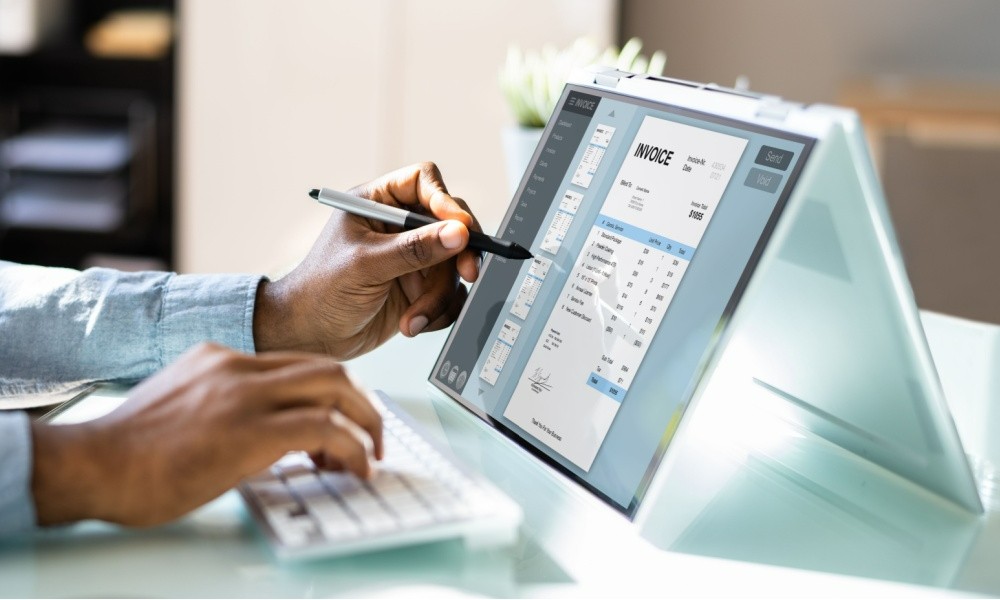Without a digital invoice processing system, companies leave themselves vulnerable to invoice fraud – a scam that almost a third of businesses have been targeted by in the last year.
Employees can easily process fake invoices if they appear genuine and the amount is below the company’s payment threshold, paying money into the bank accounts of fraudsters.
Though fraud against UK businesses has reduced in the last few years, over £1.2 billion was lost to invoice fraud in 2022, and developing technologies ensure that it remains a growing threat.
It’s vital for all businesses to learn how to recognise potential invoice fraud and avoid falling for this common scam – so here’s what you should know about how to prevent invoice fraud.
Types of invoice fraud to look out for
The most common kinds of invoice fraud include false invoices for non-existent goods or services, where scammers claim to be a supplier or tradesperson the company has previously worked with, or duplicate invoices for legitimate bills that have already been processed.
It’s also common for existing invoices to be altered as a result of criminals hacking into a genuine business email account and changing invoice payment details so they receive the money instead.
Unfortunately, it can be difficult for employees to identify a fake invoice if it appears to be from a legitimate business that the company has worked with and paid before.
Additionally, there’s also the possibility of internal invoice fraud, where senior employees with access swap payment details on invoices to divert the money to their own bank accounts. In a recent case, an employee at a public limited company stole £660,000 through 29 fake invoices in a single month.
Invoice fraud doesn’t only result in financial loss, though – it can also damage a company’s business relationships and brand reputation, and have a negative impact on staff morale.
Invoice fraud prevention tips
There are several things a company can do to avoid falling for false invoices, including:
- Confirming with a trusted person if you receive emails about changing payment details
- Reconciling every invoice by checking against previous records to verify information
- Not sharing supplier names online, as fraudsters can use this to falsify invoices
- Training employees to recognise fraud and implementing an invoice approval system
One of the most effective ways to prevent invoice fraud is to update your accounts with a digital processing system, which will automatically compare invoice details against order and payment information, flagging errors and thereby preventing most types of fraud.
Managing an onboarding process where all suppliers have to use your digital system prevents fraudulent traders from joining your network, reducing the potential for fake invoices.
On top of fraud prevention, digital invoicing comes with many other benefits, as it can also prevent missing due dates, reduce errors, and improve cashflow forecasting for the business!
Update your accounting system
Digital accounting systems make it much easier to keep accurate and accessible records of financial information and process approved payments on time – so, if you haven’t yet, it could drastically help your business to update your accounting with efficient digital services.
Of course, businesses should already be planning to switch to up-to-date digital accounting software if they haven’t already, as the UK government is rolling out its Making Tax Digital plan to improve the process of reporting financial information to HMRC and paying taxes.
Here at gbac, our accountants in Barnsley can help businesses of all sizes with payroll services and bookkeeping and VAT management. If you need assistance with digital or cloud accounting, don’t hesitate to get in touch with our team and discuss our financial services.
